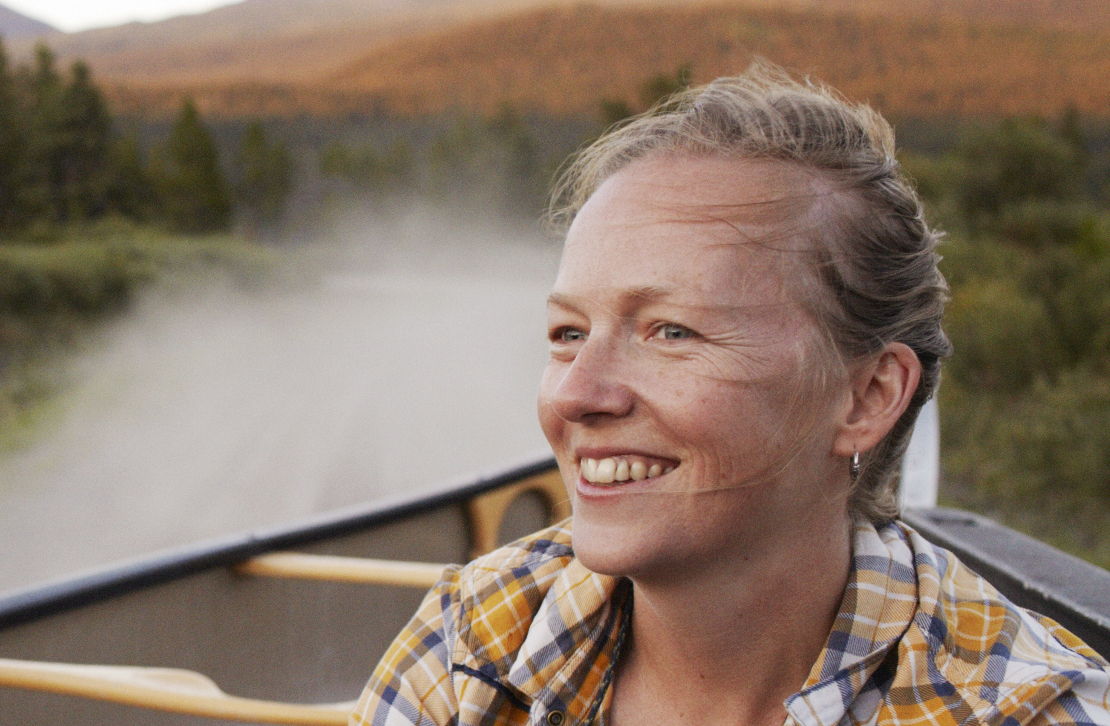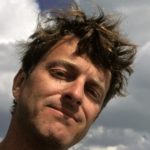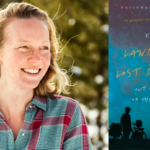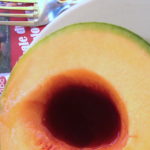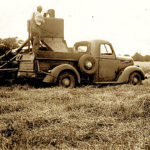Kate Harris is a writer with a knack for getting lost. Winner of the Ellen Meloy Desert Writers Award, her nature and travel writing has been cited in The Best American Essays and The Best American Travel Writing anthologies, and has featured in The Walrus, Canadian Geographic, and The Georgia Review. She lives off-grid in a log cabin on the border of the Yukon, British Columbia, and Alaska. Lands of Lost Borders: A Journey on the Silk Road is her first book.
How did you get started traveling?
As a kid growing up in rural Ontario, I traveled in words long before I traveled in any wider sense. My family couldn’t afford to go abroad on holidays, but they could afford a relative extravagance of second-hand books, as well as frequent trips to the library. I read widely and ecstatically and voraciously, but I was especially drawn to books about lands less tamed and fenced and paved-over than the place I lived. Admittedly, wildness is a matter of both perception and maturity, but in any case, exploration narratives and sci-fi novels kept me going until I finished high school, at which point I won a full ride to the University of North Carolina at Chapel Hill. The Morehead-Cain Scholarship not only covers tuition and living costs for students, but offers a “summer enrichment program” that lets you choose your own adventures abroad. When I enrolled as a freshman, I’d never seen a mountain or an ocean. By the time I graduated, I’d traveled to six of seven continents (all but Africa). I was mad for the world, I couldn’t get enough of it. I still can’t.
How did you get started writing?
Having won the lottery of wanderlust with the Morehead-Cain scholarship, the least I could do, it seemed to me, was bring others along for the ride. So I wrote long giddy emails home to family and friends about my misadventures, from chasing rhinos in Borneo (but catching only malaria) to sneaking across forbidden Tibet on a bicycle. Gradually, I started writing blog posts and short magazine pieces about these travels, but becoming “a writer” wasn’t my explicit goal. Maybe it was reading all those exploration narratives I’d read as a kid, but writing seemed a crucial part of traveling, as if a journey wasn’t complete until you’d come home to share the tale. And in the process of writing about my trips, I stumbled on connections and resonances I’d been oblivious to in the thick of traveling. The writing itself proved a means of discovery.
What do you consider your first “break” as a writer?
Shortly after returning from a long bike ride on the Silk Road in 2012, about which I hoped to write a book, two pivotal things happened. First, I won the Ellen Meloy Desert Writers Award, a crucial boost of confidence and money at a precarious time. Then a few months later, I was accepted to Banff Centre’s Mountain and Wilderness Writing Program. Until this point in my writing career (I would’ve hesitated to even call it a career), I’d only written essays and travel features, and I’d been attempting to write a travel memoir in the same style, which, to put it gently, wasn’t working. My editor at Banff, the amazing Marni Jackson, kicked my butt in all the best ways. She urged me to think about the book in terms of scenes and characters and dialogue, and suggested I perhaps not use six metaphors in a paragraph where one would not only suffice, but resonate far more powerfully. At this time, a friend introduced me to the prolific and erudite adventure/travel writer David Roberts, who was attending the Banff Mountain Film and Book Festival. I mustered the courage to slip him an essay I’d written that was in many ways an abstract of the book I was struggling to write, in terms of its spirit and themes. He thought my writing had enough promise to pass along to his agent, who eventually became my agent, who eventually sold my book, which has been my biggest “break” as a writer—but the Ellen Meloy award and Banff were crucial early cracks.
As a traveler and fact/story gatherer, what is your biggest challenge on the road?
Being on the road with the intention to write is a total joy, in part because of what Annie Dillard describes as “the perfect freedom of a single necessity”—your sole task in life, for a little while, is to be utterly present and porous to the world around you, and to get it all down. Then you come home, your days start to feel dissipated again, and you have to make sense of a mess of notes. But I love that part too, the challenge of scoring the energy of a place and the arc of an experience onto the page, and in the process, you get to live your travels all over again, often more intensely.
What is your biggest challenge in the research and writing process?
I am terrible at pitching journalistic pieces because I tend to think everything’s fascinating, and therefore timely and relevant, regardless of the current news cycle. Distinguishing between a subject and a story is not my strong point. So I’ll haplessly write about whatever amazes or obsesses me, usually in essay form, and then try to place it somewhere, which isn’t the most economical approach (see next question).
What is your biggest challenge from a business standpoint?
The kind of writing I love most seems to require long, quiet swaths of time in which to read and think and dream, and this sort of writing rarely pays off in an economic sense, certainly not immediately (book projects) and possibly not ever (poetry). So my biggest challenge from a livelihood perspective is earning enough to carve out that kind of silence and spaciousness in my life. Far easier than making a heap of money is keeping costs down, which is why six years ago my partner and I—as a PhD student and writer who hadn’t written much, respectively—moved to an off-grid cabin in the spectacularly remote community of Atlin, British Columbia. With no monthly bills, minimal rent, and mountains to hike and bike and climb right out the door, we needed so little cash to get by, and life had never felt so rich with possibility. After a few years we bought our own cabin, because mortgage payments were even cheaper than renting. And we’re a bit less crunched financially now, as my partner has landed an academic job, which means she earns more but has to spend more time away. I truly don’t know who I’d be as a writer without Atlin: living off-grid has freed me, to a large extent, from the tyranny of constantly hustling for work, and it’s a joy to live in a place where people don’t dominate the view. Nothing does away with writerly self-doubt (and self-importance) like a walk among mountains so much older than any idea of literature.
Have you ever done other work to make ends meet?
I’ve given my “very best second-best energy,” as the poet Mary Oliver advises, to various short-term gigs over the years to make ends meet. Though to be fair, more than simply making ends meet, these jobs have offered bracing relief from the often relentlessly abstract work of writing. One of the graces of a science background (I studied biology and geology as an undergrad and in grad school) is being able to land gigs like reporting on environmental policy from UN negotiations around the world, which I do as an occasional consultant for the International Institute for Sustainable Development. But my favorite side hustle so far was conducting angler harvest surveys in Atlin a few summers ago. I basically got to hang out on a dock next to a gorgeous glacial lake from dawn until dusk, reading books and watching the light change on the mountains. When people showed up with fish, which happened every few hours at most, I’d document their “harvest” and sample fins and inner ear bones on behalf of local fisheries governments. At night I’d bike home through bear country smelling like fish guts but not caring a whit, because my notebook was crammed with images and lines and ideas generated in the lulls of the day. It was such a creatively productive time, even more so than summers in which I tried to do nothing but write. The combination of being outside all day with ample time to read and write, and with the occasional duty of gutting fish to give ballast to daydreaming, was pretty much bliss with a paycheck.
What travel authors or books might you recommend and/or have influenced you?
Our cabin is insulated with books, and in a sense they’re all travel literature, whether poetry, fiction, essays, philosophy, or field guides (to flowers, birds, forests, the night sky, and in author Rebecca Solnit’s case, getting lost). Powerful writing in any genre takes you places that are otherwise difficult to reach: other lands and other lives, or more deeply into your own. Writers like Annie Dillard, Barry Lopez, Virginia Woolf, Pico Iyer, Anne Michaels, Gretel Ehrlich, Michael Ondaatje, Peter Matthiessen, Solnit, Anne Carson, and Ellen Meloy all exploded my understanding of what is possible in writing about place and life’s most pressing questions. Beyond them, The Possessed by Elif Batuman, is proof that any premise, however unpromising—studying for a PhD in Russian literature, for example—can make for a brilliant and quirky read in the right writer’s hands. Invisible Cities by Italo Calvino is a fantastical novel that explores how meaning and power dissolve the more tightly we try to grasp them, and Alan Lightman’s Einstein’s Dreams takes a similar approach to exploring space and time. Red Dust recounts Ma Jian’s haunting trek through China in 1983 as a Chinese artist who feels like a foreigner in his own country. Virginia Woolf’s The Waves packs all the wonder and mystery and horror of existence into language “so outside the fumblings of tidy mouths that it can read like an insult…a 200-page insult to mediocrity,” as Jeanette Winterson memorably put it. In terms of poetry, Ilya Kaminsky’s Dancing in Odessa, Don Domanski’s All Our Wonder Unavenged, Jim Harrison’s The Theory and Practice of Rivers, and the collected works of W.S. Merwin, Rilke, and Wallace Stevens never fail to send me spinning.
What advice and/or warnings would you give to someone who is considering going into travel writing?
There are so many ways of becoming a travel writer, but speaking from my own experience, I’d recommend studying anything but writing at university. Not only will majoring in, say, physics or history or linguistics open up other doors, in terms of making ends meet, it’ll give you something to write about, and, more crucially, a fresh slant on the world. I’d warn would-be travel writers that the ratio of time spent traveling to time spent at a desk is alarmingly skewed, at least if you’re in this line of work for the fresh air and foreign perks. You really have to love traveling in words as much as—even more than—you love traveling in the world. I’d also warn that writing is more accurately rewriting. You need to be electrified by language, of course, but you also need a certain dogged obsessiveness, a capacity for thankless slogging, to see a writing project through.
What is the biggest reward of life as a travel writer?
Travel writing is a license to explore, not in the narrow colonial meaning of planting flags and charting maps, but in the more generous sense of setting off for a place (possibly in the world, unquestionably in words) that you’re not certain to reach. Your job is to wander, to wonder, to stumble on unexpected connections, to fall in love with the world and to let it break your heart over and over again. Above all, your job is to be reminded that you know next to nothing—and then to write out of that state of wonder and bewilderment, which is the state of mind and being most appropriate to the circumstances in which we’ve found ourselves: alive on a tiny planet in a universe full of stars. Travel wakes you up to the strangeness of existence, and so does the best kind of writing: what better way to spend this one and only life than by devoting yourself to both?

